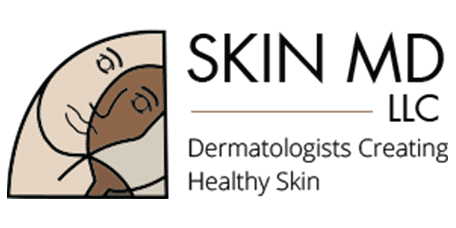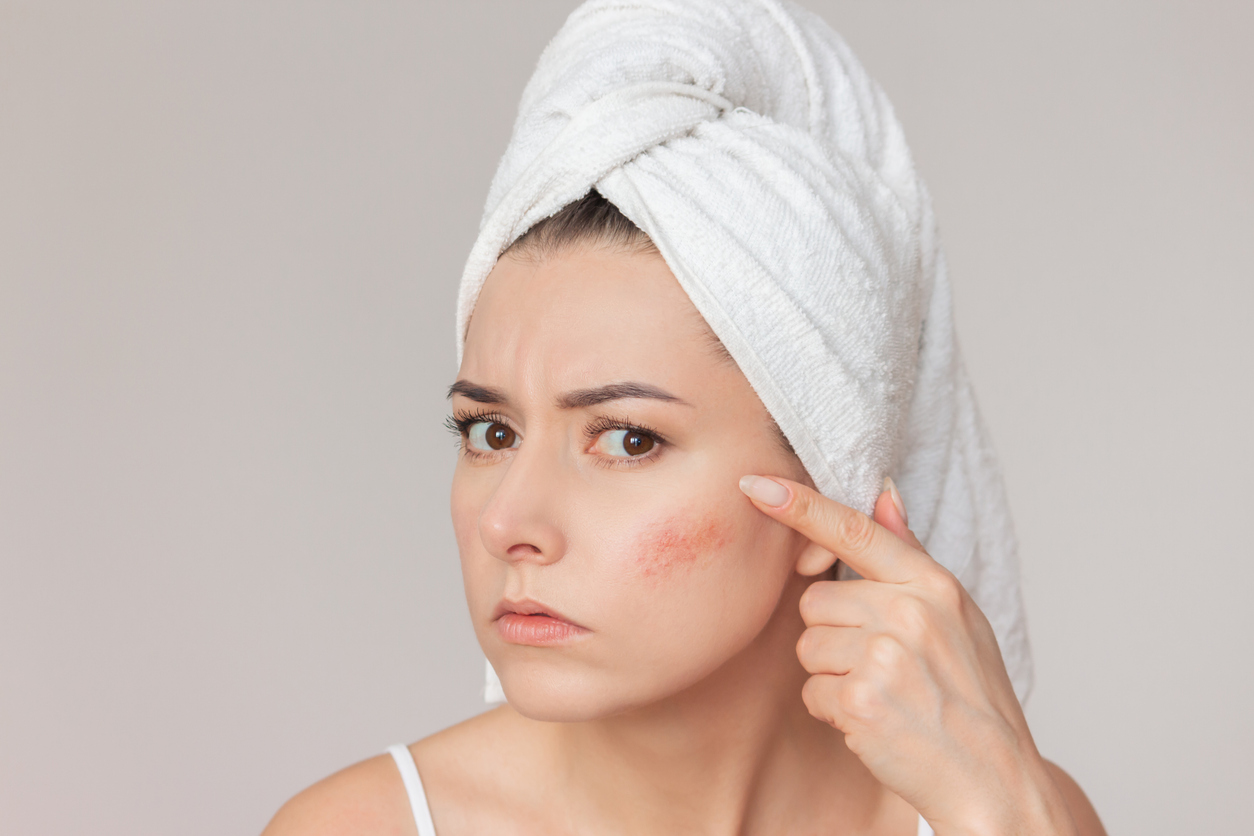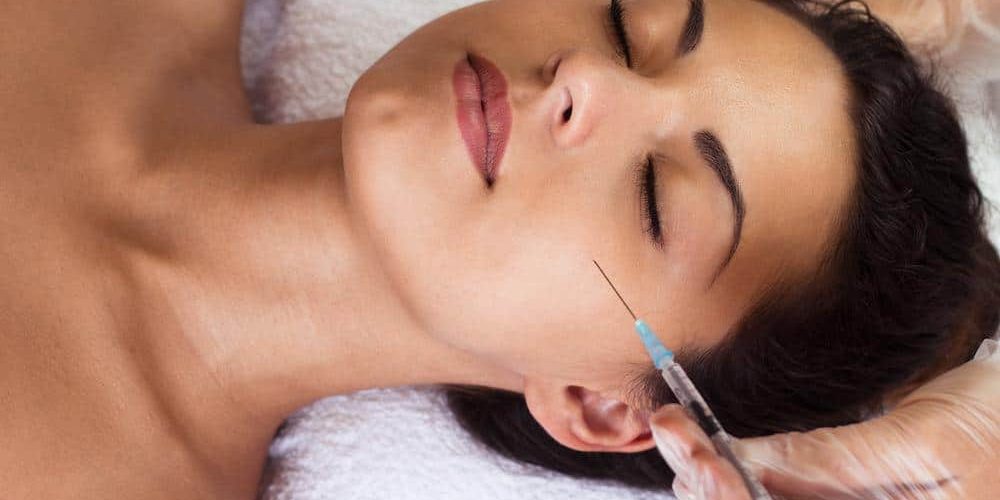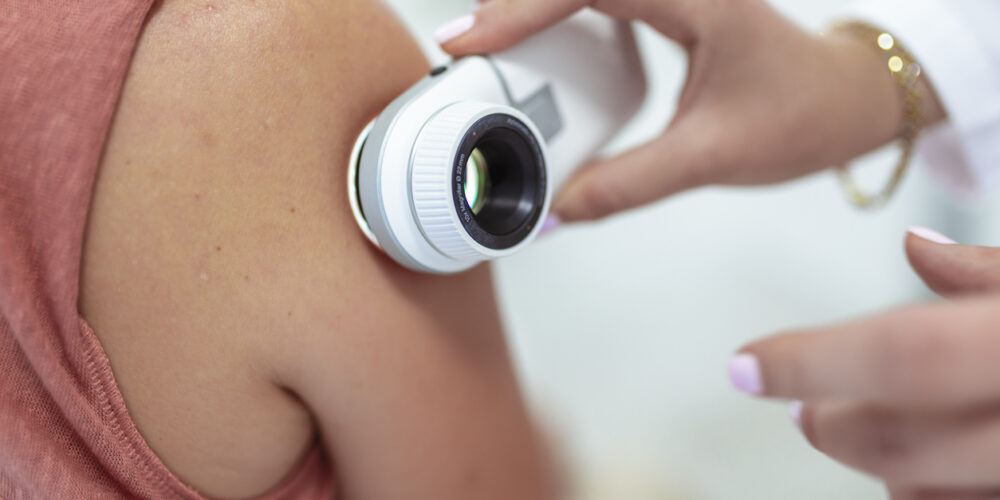According to the National Rosacea Society, an estimated 16 million Americans suffer from the condition. However, many may not realize they have it or seek treatment. The condition most commonly develops after the age of 30. It affects people of all skin types, though it is more frequently diagnosed in fair-skinned individuals. Women are diagnosed more, but men tend to experience more severe symptoms when they are affected.
Despite its prevalence, rosacea remains underdiagnosed and undertreated in the United States, highlighting the need for greater awareness and improved access to dermatological care. At Skin MD Chicago, we’re committed to providing expert care and education about rosacea. Let’s dive into some of the most frequently asked questions about this chronic skin condition.
What is Rosacea?
Rosacea is a chronic inflammatory skin condition that primarily affects the face. It’s characterized by redness, visible blood vessels, and sometimes small, red, pus-filled bumps. While it can affect anyone, it’s most common in fair-skinned individuals, particularly women over 30.
What Causes Rosacea?
The exact cause isn’t fully understood, but several factors are thought to contribute:
- Genetics
- Environmental factors
- An overactive immune system
- Demodex mites (microscopic organisms that live on the skin)
- Blood vessel abnormalities
It’s important to note that while these factors may contribute to rosacea, the condition isn’t caused by poor hygiene or infection.
What Are the Symptoms of Rosacea?
Symptoms can vary from person to person, but common signs include:
- Facial redness (especially on the cheeks, nose, chin, and forehead)
- Visible blood vessels
- Swollen, red bumps that may resemble acne
- Burning or stinging sensation on the skin
- Eye irritation (in some cases)
- Enlarged nose (more common in men)
These symptoms may come and go, with periods of flare-ups followed by remission.
What Triggers Rosacea Flare-ups?
Many factors can trigger or worsen symptoms. Common triggers include:
- Sun exposure
- Emotional stress
- Hot or cold weather
- Wind
- Spicy foods
- Alcohol consumption
- Hot drinks
- Exercise
- Certain skincare products
Identifying and avoiding personal triggers is a crucial part of managing rosacea.
How is Rosacea Diagnosed?
At Skin MD Chicago, our board-certified dermatologists diagnose rosacea through a thorough examination of your skin and a review of your medical history. While there’s no specific test for rosacea, our experts can identify the condition based on its characteristic appearance and symptoms.
Can Rosacea Be Cured?
While there’s currently no cure, the good news is that it can be effectively managed with proper treatment and care. At Skin MD Chicago, we offer a range of treatments to help control symptoms and prevent flare-ups.
What Treatments Are Available for Rosacea?
We offer several rosacea treatment options tailored to each patient’s specific needs:
- Topical Medications: These are applied directly to the skin to reduce redness and inflammation.
- Oral Medications: Antibiotics may be prescribed to control symptoms.
- Laser & Light Therapies: These treatments target visible blood vessels and reduce redness. At Skin MD Chicago, we use advanced laser treatments like ExcelV to permanently reduce redness by eliminating tiny dilated blood vessels.
- Skincare Recommendations: We provide guidance on gentle skincare routines and products suitable for rosacea-prone skin.
- Lifestyle Modifications: We help patients identify and avoid their personal rosacea triggers.
Can Diet Affect Rosacea?
Yes. Diet can play a role in rosacea management. Some foods and beverages can trigger flare-ups in specific individuals. Common dietary triggers include:
- Spicy foods
- Hot beverages
- Alcohol, especially red wine
- Citrus fruits
- Tomatoes and other nightshades
However, triggers can vary from person to person. Keeping a food diary can help identify your personal dietary triggers.
Is Rosacea Related to Acne?
While rosacea can sometimes be mistaken for acne due to the presence of red, swollen bumps, they are different conditions. Rosacea is an inflammatory disorder, while acne is primarily caused by clogged pores and bacteria. However, some skin treatments can be effective for both conditions.
Can Rosacea Affect the Eyes?
Yes. In some cases, rosacea can affect the eyes, a condition known as ocular rosacea. Symptoms may include:
- Redness of the eyes
- Burning or stinging sensation
- Dryness or grittiness
- Light sensitivity
If you experience these symptoms, it’s important to consult with both a dermatologist and an eye doctor.
How Can I Manage Rosacea at Home?
While professional treatment is crucial, there are several steps you can take at home to manage your symptoms:
- Use gentle, non-irritating skincare products.
- Always wear broad-spectrum sunscreen. We recommend those with zinc oxide or titanium dioxide.
- Avoid known triggers.
- Keep your skin cool.
- Practice stress management techniques.
Discover Your Path to Clearer Skin with Skin MD Chicago
Remember, what works for one person may not work for another. It’s all about finding the right combination of treatments and lifestyle changes that work for you. At Skin MD Chicago, we understand that living with rosacea can be challenging. We’re committed to providing personalized, comprehensive care to help you manage your symptoms effectively. Our team of expert dermatologists is here to guide you through your journey.
Whether you’re dealing with persistent facial redness, visible blood vessels, or inflammatory bumps, we have the expertise and advanced treatments to help. From our specially formulated topical medications to state-of-the-art laser treatments, we offer a full spectrum of care.
Discover Expert Skin Treatments at Skin MD in Chicago, IL
Don’t let rosacea control your life! Take the first step towards clearer, calmer skin. Schedule an appointment with Skin MD Chicago today, and let’s work together to create a treatment plan that’s as unique as you are.



